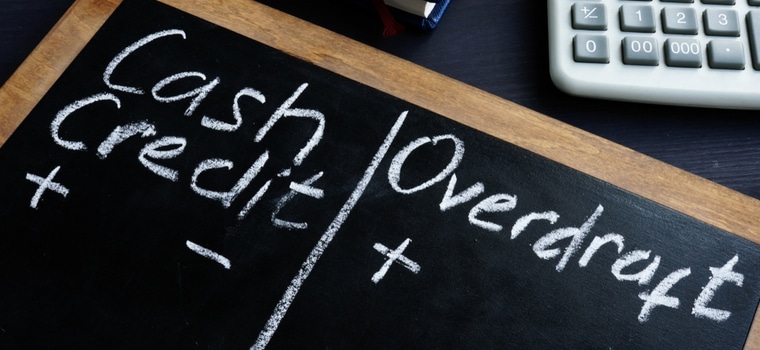An overdraft occurs when you pay or withdraw a sum that is larger than the balance in your checking account. When this happens, the bank may decline the transaction or it may cover the overdraft and charge you a fee. Overdraft fees can add up very quickly and become a significant cost, especially if you make a series of transactions before you realize that your account balance is lower than you thought it was.
How to Avoid Overdraft Fees
Overdraft fees can be expensive. Many banks charge as much as $35 per overdraft and many will also charge a daily fee until your account has a positive balance again. Banks may also charge interest on overdrafts. Here are some ways to avoid spending on overdraft fees:
- Opt-out of overdraft protection. Banks that provide automatic overdraft protection will allow you to cancel the service. That could lead to a transaction being refused, but it can also save you the cost of overdraft fees.
- Know your balance. Most banks will let you check your balance online or through a mobile app. If you know what your balance is, you’ll be less likely to spend or withdraw more than you have in your account.
- Link to a savings account. If your checking account is linked to a savings account or other account, your bank will cover any shortfall from the balance in your other account. You will still pay a fee, but it will usually be lower than the overdraft fee.
- Apply for a line of credit. Some banks will issue you a small line of credit for covering overdrafts. You will pay interest on any money you draw from the line of credit, so pay the money back as soon as you can.
- Use automatic payments and deposits. If your paycheck is deposited automatically it will be available immediately. You won’t risk overdrawing your account while waiting for a check deposit to clear. Using automatic payments for rent and other fixed expenses lets you create a schedule for exactly when those payments will be made, which makes it easier to track your balance.
- Sign up for online or text alerts. Many banks will notify you by text message or email when your account falls below a certain level.
- Watch out for transactions that place a hold on funds in your account. Some debit card transactions, like renting a car or a hotel room or even buying gas, will place a hold on some of the funds in your checking account. That’s not permanent, but it could cause an overdraft if you forget the hold.
- Use cash for small purchases. It’s hard to keep track of small purchases and they can add up quickly. Saving your debit card for specific transactions makes overdrafts less likely.
- Keep extra money in your checking account. Holding a bit of extra money in your checking account as a cushion against overdrafts can save you substantial sums in overdraft fees.
- Don’t use overdrafts as short-term loans. Some checking account holders use overdraft protection as a form of short-term loan, allowing them to draw cash when they are out of money. An overdraft may be cheaper than a payday loan, but if you’re regularly using overdrafts to cover cash shortfalls you may want to take a closer look at your budget and spending habits.
- Deposit funds immediately. If you know you’ve overdrawn your account, try to deposit funds to cover the amount on the same day. Many banks will not charge a fee if a deposit is received on the same day. If your deposit is not on time and it’s your first overdraft or your first in some time, try contacting your bank, explaining the situation, and asking them to waive the fee. It may not work but it’s worth a try!
- Change your bank. If your bank’s overdraft fees are high and you’re not satisfied with their overdraft protection and fee policies, consider shopping for a new bank. [10]
You may choose to use more than one of these methods to prevent overdrafts and minimize their impact if they do occur.
Conclusion
It’s best to avoid overdrafts completely if you can. If you know your account is often low on cash and you’re spending close to the amount in your balance it can take some effort to avoid overdrafts, but the effort can save you a considerable amount of money.





